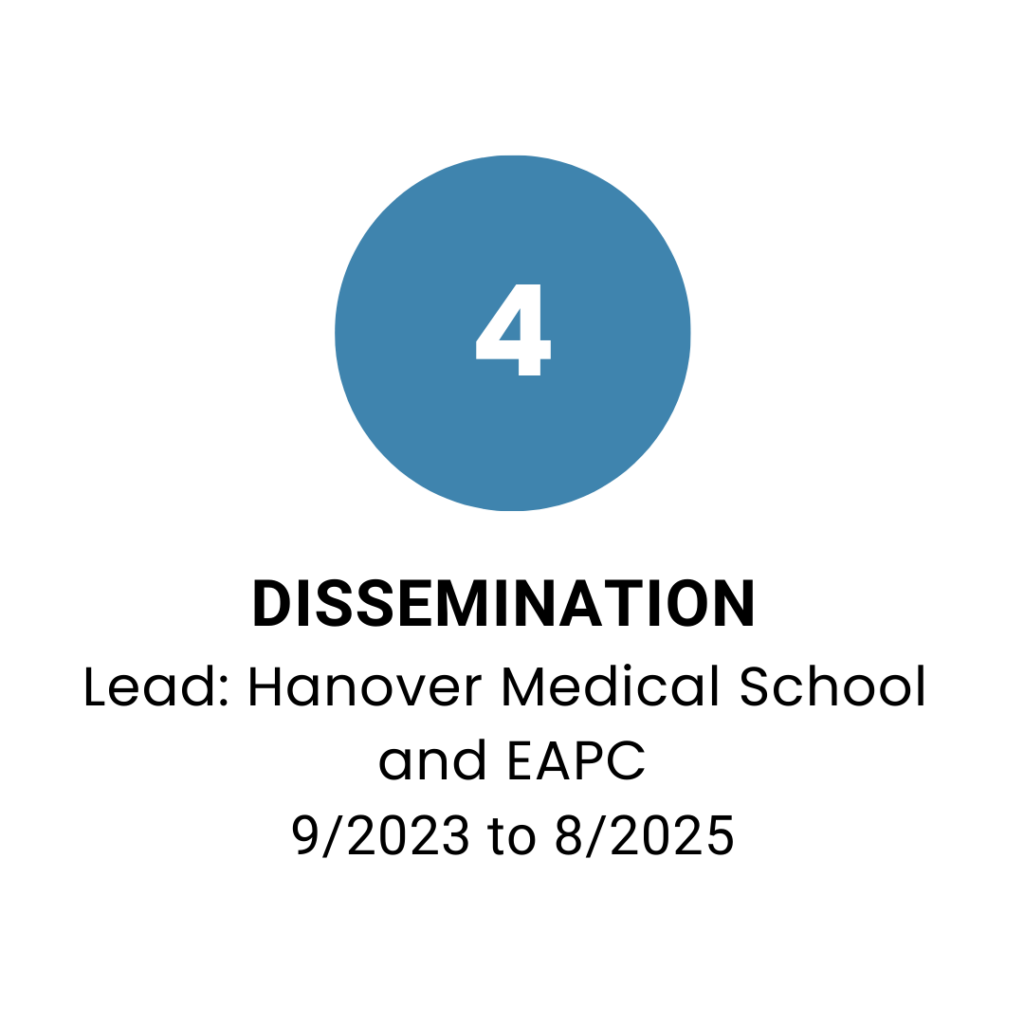Breaking bad news is an inherent challenge in the daily clinical work of healthcare professionals, requiring empathy and effective communication. Recognising the need for increased awareness and training in healthcare communication, the VR-TALKS project emerges as an innovative solution.
Project Goals
The main goal of the project is to introduce virtual reality (VR) into healthcare teaching modules that teach communication between caregivers and patients. VR technology is mainly used for practicing the delivery of bad news and the resulting interactions. The VR technology will enable students to evaluate and comment on reactions, suggest improvements or other approaches, and describe and analyse the patient’s behaviour and experience as well as their own.

project schedule

The main objective of this work package, organised by Leiden University, is to plan the implementation and evaluation of a VR application for training difficult communication in healthcare education. This includes the analysis and selection of suitable teaching modules and consideration of possible challenges. For this purpose, a survey was conducted to collect input from students, lecturers and instructors, as well as best practices for use in teaching. In addition, the project partners have already identified suitable teaching modules and can thus ensure the sustainable and effective integration of the VR application in all participating faculties.
Status:
The foundational phase involved a successful in-person meeting in Munich, where partners explored VR’s potential in a clinical education setting. Teaching modules were analyzed to identify those most suitable for VR integration, and potential obstacles to VR implementation were surveyed among stakeholders. A significant methodological change included postponing the data collection framework to a later phase to align with the VR application’s specifics. This work package set the groundwork for script development by identifying clinical scenarios and outlining a methodological toolkit for the VR environment.

The main goal of this work package is to create representative scripts for a VR application that simulate difficult communication situations in healthcare practice. Based on the knowledge of ComGuide, scripts will be developed based on real clinical situations, such as the communication of serious diagnoses.
The scripts consist of different reactions of an avatar patient during conversations with healthcare professionals. The collected findings from the clinical practice of all partner universities are incorporated into the scripts. Initially created and tested in English, the scripts will be translated into several languages (Czech, Dutch, German, English, Portuguese) and will serve as the basis for the technological development of the VR application, which will be piloted in the next work package.
Status:
Two primary communication tree scripts were developed, simulating complex patient-physician dialogues. These scripts were tested in a streamlined text-based format using a web application, replacing the initial video-based testing plan to increase efficiency. The scripts were successfully translated into multiple languages by partner universities, enhancing accessibility. Motion capture technology was employed to animate virtual avatars with emotional responses, providing realistic interaction scenarios. Partner contributions remained as planned, ensuring robust collaboration across institutions.

The aim of work package three, led by Cork College, is to conduct a mixed-method study to test the feasibility, usability and acceptance of the VR application from the perspective of students and teachers. Developed and validated data collection tools and the cases created in the VR applications will be used. The specific objectives are: (i) to test feasibility, usability and user satisfaction with the VR application at all seven universities; (ii) to explore students’ and lecturers’ experiences with the VR application; (iii) to identify barriers and facilitators for the implementation of the VR application into the curriculum; and (iv) to formulate concrete recommendations for the full integration of the VR application into the curriculum at all seven universities.
Status:
Preliminary findings suggest positive feedback from stakeholders. Key objectives include identifying challenges to VR implementation in education and generating recommendations for integrating VR into medical curricula. The VR application is prepared for further testing, and plans are underway for peer-reviewed publications and conference presentations to share insights and findings.

The long-term sustainability of the project will be ensured through the cooperation with the European Association for
Palliative Care (EAPC), which is ready to disseminate the project across Europe. Together with a team from Hanover Medical School they will use various channels and engage with the professional community through articles in professional journals and presentation at selected congresses to spread awareness and the potential of VR applications as a modern teaching method.
Status:
Project dissemination commenced with a dedicated website and presentations at key events, such as the EAPC Congress in Barcelona. The project is actively shared on social media platforms like LinkedIn and through collaborations at conferences. Future dissemination will include newsletters, webinars, and themed sessions at upcoming international conferences. Publications in scientific journals are planned, and the project continues to engage stakeholders through digital platforms, aiming to foster a long-term academic and clinical community around VR communication training.
ComGuide and 3dsense: Roles in VR-TALKS
VR-TALKS is officially managed by 3dsense, as the Erasmus+ grant was awarded before ComGuide was established. Both companies share the same founders, Jan Hrdlička and Jiří Wild. ComGuide was created in 2023 as a spin-off from 3dsense, focusing exclusively on AI-driven virtual patients for medical training. While 3dsense oversees grant administration, scenario development, and multimedia content—fully funded by the grant—ComGuide handles software development and application integration, financed privately. The use of ComGuide branding and emails reflects its key technical contribution to VR-TALKS. Despite the project being formally registered under 3dsense, ComGuide is responsible for transforming research outputs into a fully functional VR training tool. This structural division ensures compliance with grant conditions while leveraging ComGuide’s technological expertise. From 2026, ComGuide will take full ownership of the project’s further development, ensuring its long-term sustainability and impact.
Funding
The project is funded by the ERASMUS+ Programme through the Centre for International Cooperation in Education in the Czech Republic, “Dům zahraniční spolupráce” (DZS), spanning from 01.09.2023 to 31.08.2025 (24 months).
